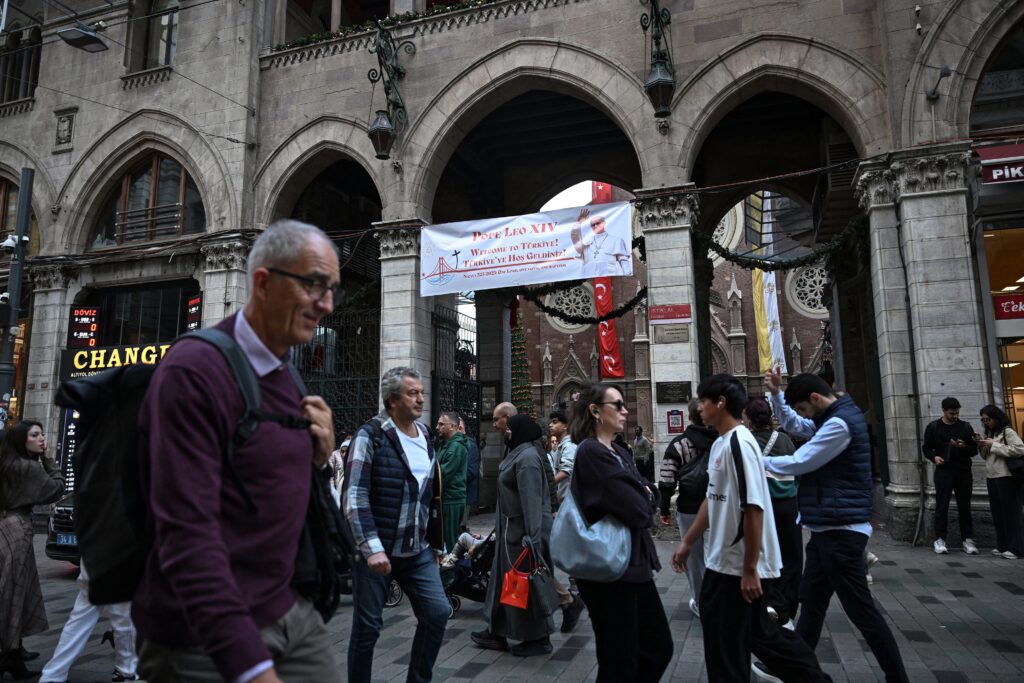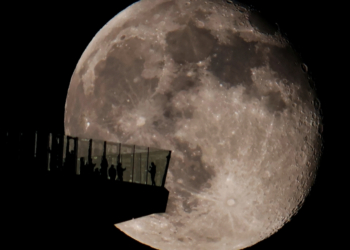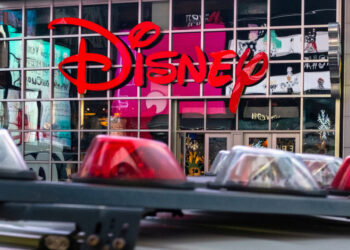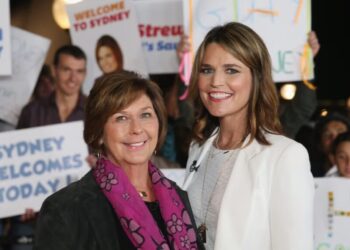VATICAN CITY — On his first official foreign trip, Pope Leo XIV will venture onto the tricky terrain of interfaith relations, with stops in two Muslim-majority countries — Turkey and Lebanon — where he will confront fresh wounds over Israel’s warfare in the Middle East, fortify ties with the Eastern Orthodox Church and seek to spread the early themes of his papacy: unity and peace.
Leo’s sojourn, into the cradle — and cauldron — of monotheistic faith will be the biggest test yet for the first U.S.-born pontiff, a Chicago boy made good but whose intentions are inescapably shadowed by those of his immediate predecessors.
Loaded words on the prophet Muhammad by Pope Benedict XVI in 2006 sparked outrage in the Muslim world, instigating the firebombing of churches and drawing official protests. Pope Francis later made historic advances with Islam, signing a 2019 manifesto of peace and fraternity between the two faiths.
The relationship between Catholicism and Islam is but one potential land mine on the six-day trip. which will plunge Leo into the thorny issue of security for Christians in the Middle East. In a nod to interfaith sensitivities on the trip, he will also meet in Turkey with the country’s chief rabbi.
Especially in Lebanon, Leo will be closely watched by Israeli leaders, who smarted at Francis’s blistering denunciations of the war in Gaza, which the late pontiff compared to “terror” and is said to have privately called a “genocide.” By some Lebanese, he is being hailed for his bravery for venturing into a war-weary nation where Israeli bombs fell near the capital as recently as Sunday.
“Arabs and Israelis will weigh every comma of his speeches, and international public opinion will measure the effectiveness of his words. It’s a test,” said Marco Politi, a longtime Vatican watcher.
In Turkey, Leo will visit with a small community of local Catholics and solidify ties with Islam and the Orthodox Church, which is suffering from brutal internal divisions including between its Russian and Ukrainian branches, even as it gains popularity among young conservative men in the United States.
But the main purpose of the trip is for Leo, with other Christian leaders, to mark the 1,700th anniversary of the Council of Nicaea, a historic gathering to settle major divisions over the nature of Jesus Christ that predated the great Christian schisms and that scholars say symbolically amounted to a final break with Judaism. The event was planned before Francis’s death in April.
In a relative novelty for popes visiting non-English-speaking nations, the first U.S.-born pontiff will deliver most speeches in English — though some in Lebanon will be given in French.
Observers in Leo’s own Catholic flock will be watching, perhaps more than anything, for an emergence. Inaugural trips can set a tone for a pope, defining the rise of a new global figure — in this case, the first born in the United States to wield the formidable power of the papacy.
Masses of fellow Germans greeted Benedict when he landed in Cologne on a trip that began to cement his image as a lofty if sometimes remote theologian. Eight years later, Francis, an emotive Argentine, quickly returned to Latin America for a rousing first trip to Brazil that foreshadowed his secular popularity and evolution into the roll-up-your-shirtsleeves “people’s pope.”
Had Leo opted for a triumphant return to Chicago or a visit to Peru — his adoptive country, where he is now hailed as a favorite son — the pontiff might have conjured up Instagrammable moments of pope fever. Instead, he is journeying to a part of the world that is home to less than 1 percent of the world’s Christians — choosing, as recent popes have tended to do, to honor trips promised by his predecessor.
“It would have been easier for Leo if he would have gone to Peru,” said the Rev. Giulio Maspero, a professor of dogmatic theology at Rome’s Pontifical University of the Holy Cross. “He is not taking the easy way.”
Leo will be scrutinized on style as much as substance. One question is whether the trip will forge a new image or reinforce a gathering sense of him as a plain-speaking but subdued personality who is largely echoing Francis on issues like migrant rights and the poor, while seeming somewhat less larger-than-life.
The extent of his Americanness may also be parsed. So far, there is a sense of Leo as transcending a single nation — he is also a citizen of Peru — an image that may be reinforced by his decision to depart for his first trip on Thanksgiving.
Leo has publicly criticized the Trump administration in recent weeks on its migration policy and military bluster, and during encounters with journalists, he is likely to face further questions aimed at assessing the extent to which he is prepared to delve into partisan politics and divisive culture wars. It was at the end of Francis’s first trip as pope, for instance, that he made global headlines by famously declaring, “Who am I to judge?” about homosexuals who seek God’s grace.
Vatican officials privately describe the trip as “delicate,” even “difficult.” They expect moderate crowds during Leo’s first stop in Turkey, a 99 percent Muslim nation where the pope will test his diplomatic skills. He will meet first with President Recep Tayyip Erdogan, who heads a conservative Islamist party, and later with Ecumenical Patriarch Bartholomew of Constantinople, leader of the Eastern Orthodox Church, which is badly splintered, largely because Patriarch Kirill of Moscow has endorsed Russia’s war in Ukraine.
Leo and Bartholomew are set to issue a joint statement. Speculation has circulated that they may seek to align their faiths on the date of Easter, but any final agreement will be difficult to achieve, and could deepen the rifts with the Russian Orthodox Church.
“The Patriarch of Constantinople … wouldn’t be able to make a change like that and automatically have the assent of all the other churches,” said Samuel Noble, a scholar of Orthodox Christianity at the University of Liège in Belgium.
In a hint of the complexity ahead, Leo will visit Istanbul’s Blue Mosque as some Catholic clerics have warned that he should not repeat the gesture of Francis, who prayed there next to Istanbul’s Grand Mufti Rahmi Yaran in 2014. Even more thorny is the significant question of Hagia Sophia, a cathedral turned mosque turned museum turned mosque again. The two structures rest opposite one another in Sultanahmet Square, though there is thus far no visit to the Hagia Sophia scheduled on the pope’s agenda.
Francis in 2014 toured the cavernous building that once served as the world’s largest Christian church. The structure, perhaps the strongest-standing reminder of the fall of Christian Byzantine to Muslim Turks, has become a wedge issue since Turkey’s controversial repurposing of it as a mosque in 2020.
Any visit to the Hagia Sophia could be interpreted as overly ingratiating to Erdogan, a leader who has blended nationalism, populism and Islam, said Craig Considine, an expert on Catholicism and Islam at Rice University.
“It would be a very dangerous optic for Leo,” Considine said. “A lot of Catholics might see it as bending the knee too much.”
Leo’s agenda is packed with intimate, private encounters. But his opportunity to shine will be greatest during his largest-scale events, including a Saturday Mass at Istanbul’s Volkswagen Arena. The highlight may come on his final day, Tuesday, at a cornerstone service on the Beirut waterfront following a silent prayer at the site of the 2020 port explosion that killed 200, injured thousands and left a swath of the Lebanese capital destroyed.
While Lebanon, with a large if diminishing Christian population, is more likely to yield big crowds and tone-setting, security concerns could still curtail turnout, and Leo may be pressed into verbal contortions as he balances respect for Islam with defense of Christians under siege in parts of the Muslim world. Lebanese parishes are bussing in faithful to the capital from across the country for the pope’s visit.
He is also set to focus on the plight of refugees, a core issue of his early papacy on which he has largely echoed his predecessor.
Past papal trips have left indelible marks on Lebanon, a country at times seen as a sort of religious Switzerland where 18 officially recognized faith communities coexist, if uneasily. Christians formed the majority before the civil war that began in 1975. But many have abandoned the war-torn nation, emptying out entire neighborhoods and parishes. Christians now make up about 32 percent of the population in Lebanon, with Muslims, both Sunni and Shiite, constituting most of the rest.
In Lebanon, where schools, banks and government offices will be closed to reduce traffic during the papal visit, Leo faces high expectations.
“As an American, he holds the influence needed to encourage the American administration to seek peace in the region,” said the Rev. Elias Karam, a Greek Orthodox priest in the Lebanese town of Kab Elias who hosts a weekly religious program. “We are expecting a message from the pope to encourage and inspire Christians still living in the land to remain attached to it.”
There is growing concern over the spiraling security situation in Lebanon ahead of Leo’s visit after an Israeli strike on Sunday killed a top Hezbollah commander in the southern suburbs of Beirut.
In Lebanon, Leo will also be seen as speaking to rival political and religious factions within the country as well as to a regional audience that includes Israel and Syria.
“We hope that Pope Leo XIV’s visit to Lebanon will serve to support the country’s unity at a time when the Middle East, and its neighbor Syria, are being divided into sectarian cantons and strife,” said Edgard Traboulsi, a Protestant Christian member of the Lebanese Parliament.
Leo’s visit to the Middle East follows Francis’s historic outreach to the Muslim world.
Francis became the first pope to visit Iraq and the Arabian Peninsula, the birthplace of Islam. In 2019, he co-signed a landmark document with the grand imam of al-Azhar, largely viewed as the highest authority in Sunni Islam, that highlighted belief in one common “God” and set shared benchmarks of faith including nonviolence and aid for the poor.
Khaldoun Kawas, spokesman for the mufti of Lebanon, the highest Islamic authority in the country, said Leo’s trip would see faiths intermingle in Beirut’s highly symbolic Martyrs’ Square for an encounter involving speeches from both spiritual leaders.
Representatives of all of Lebanon’s recognized Muslim and Christian sects will attend, and there will be readings from the Quran and the Bible. “The Islamic-Christian relationship is strong,” Kawas said. “And the pope’s visit strengthens these relations” further.
Lebanon has emerged as a laboratory for interfaith cooperation. Its Jesuit Refugee Service, for instance, has aided predominantly Muslim Syrian refugees, and during the recent war between Israel and Hezbollah, it offered shelter in churches, distributed bedding, hygiene kits, food and cleaning products, and provided displaced children with classes and counseling.
“Hospitality opens up the opportunity for encounters,” said Michael Petro, an American who runs a Jesuit community center in Lebanon. “Most of the people that we serve in JRS are not Christian.”
El Chamaa reported from Beirut and Haidamous from Washington. Yeganeh Torbati and Burhan Yuksekkas in Istanbul contributed to this report.
The post Pope Leo’s trip to Middle East will stress, and test, interfaith ties appeared first on Washington Post.




